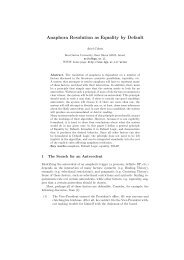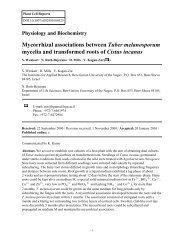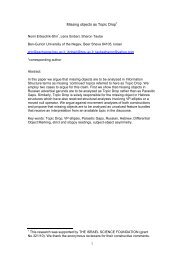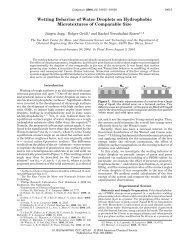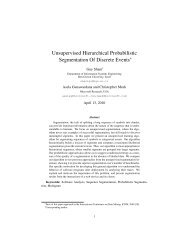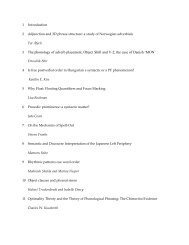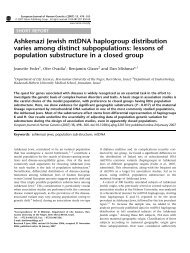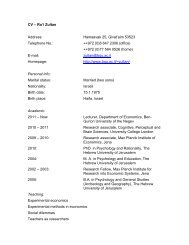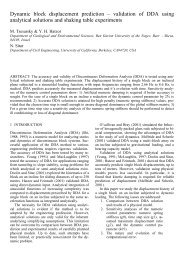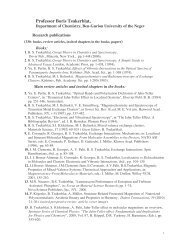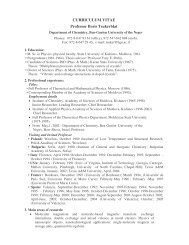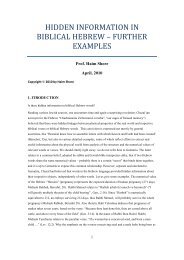Generics, Frequency Adverbs, and Probability
Generics, Frequency Adverbs, and Probability
Generics, Frequency Adverbs, and Probability
You also want an ePaper? Increase the reach of your titles
YUMPU automatically turns print PDFs into web optimized ePapers that Google loves.
(13) Birds (usually) fly.<br />
<strong>Generics</strong> <strong>and</strong> frequency statements, then, express contingent, rather than<br />
necessary statements. It should be emphasized that this fact does not preclude<br />
their being lawlike.<br />
The following sentences are lawlike (<strong>and</strong> true),<br />
although they do not express necessary properties, under any conceivable<br />
definition of necessity:<br />
(14) a. A cheetah outruns any other animal.<br />
b. Spices are affordable.<br />
c. Gold cubes are smaller than 10 cubic meters (adapted from Koningsveld<br />
1973, 60).<br />
d. Dogs annoy Sam.<br />
Perhaps running fast is a necessary property of cheetahs, but certainly not<br />
the property of running faster than any other animal, since some other animal<br />
might have been faster. Affordability is a contingent property of spices—in<br />
fact, throughout much of history, spices were extremely expensive; yet (14.b)<br />
is true nonetheless. Similarly, we would be hard-pressed to claim that gold<br />
cubes are necessarily smaller than 10 cubic meters, or that annoying Sam<br />
is a necessary property of dogs. The fifth puzzle, then, is how generics <strong>and</strong><br />
frequency statements can express contingent facts, <strong>and</strong> yet be lawlike.<br />
10



